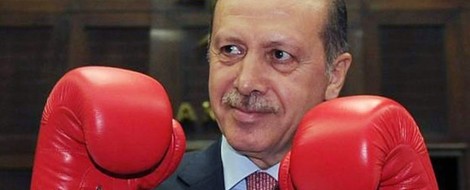Your podcast discovery platform
Curious minds select the most fascinating podcasts from around the world. Discover hand-piqd audio recommendations on your favorite topics.

piqer for: Global finds Globalization and politics Technology and society
Turkish journalist, blogger and media expert. Writes regular columns for The Arab Weekly and contributes to Süddeutsche Zeitung, El Pais and the Guardian. An European Press Prize Laureate for 'excellence in journalism' in 2014, Baydar was awarded the prestigious 'Journalistenpreis' in Germany by Südosteuropa Foundation in February 2018.
There Is Much More To Turkish Referendum Than Meets The Eye
By the evening of April 16, Sunday, Turkey will have decided definitely on what sort of identity its political management will have. It's arguably the most critical choice the voter will have had since the establishment of the republic in 1923.
The unstoppable drift to the referendum, which is about saying yes or no to a package of constitutional amendment granting President Erdoğan nearly absolute power, was a step that followed a botched coup and an immense purge and wave of arrests last summer.
Erdoğan took the country step by step closer to the edge of this momentous choice, with a weakened opposition that is also split within the no camp.
With the polls indicating a slight but steady rise of the yes vote, the country is at the edge of giving up on its parliamentary system.
What drives Erdoğan to personalize power that sees no limits? What are the hidden elements that lie beneath the series of moves that turned Turkey into a spectacular laboratory of politics, with an experiment on full power grab?
"The Turkish president is ultimately even more determined to extend his term limits and secure lifetime immunity than to obtain legal cover for his one-man rule," argues Aykan Erdemir, a former deputy of the secular-centrist main opposition party, CHP. He explains the concealed dynamic as an instinct of his political survival.
"Erdogan, haunted by a December 2013 graft probe and string of corruption cases from his years as Istanbul mayor in the ‘90s, has a strong interest in providing himself lifetime protection, beyond his term in office as president," he writes.
